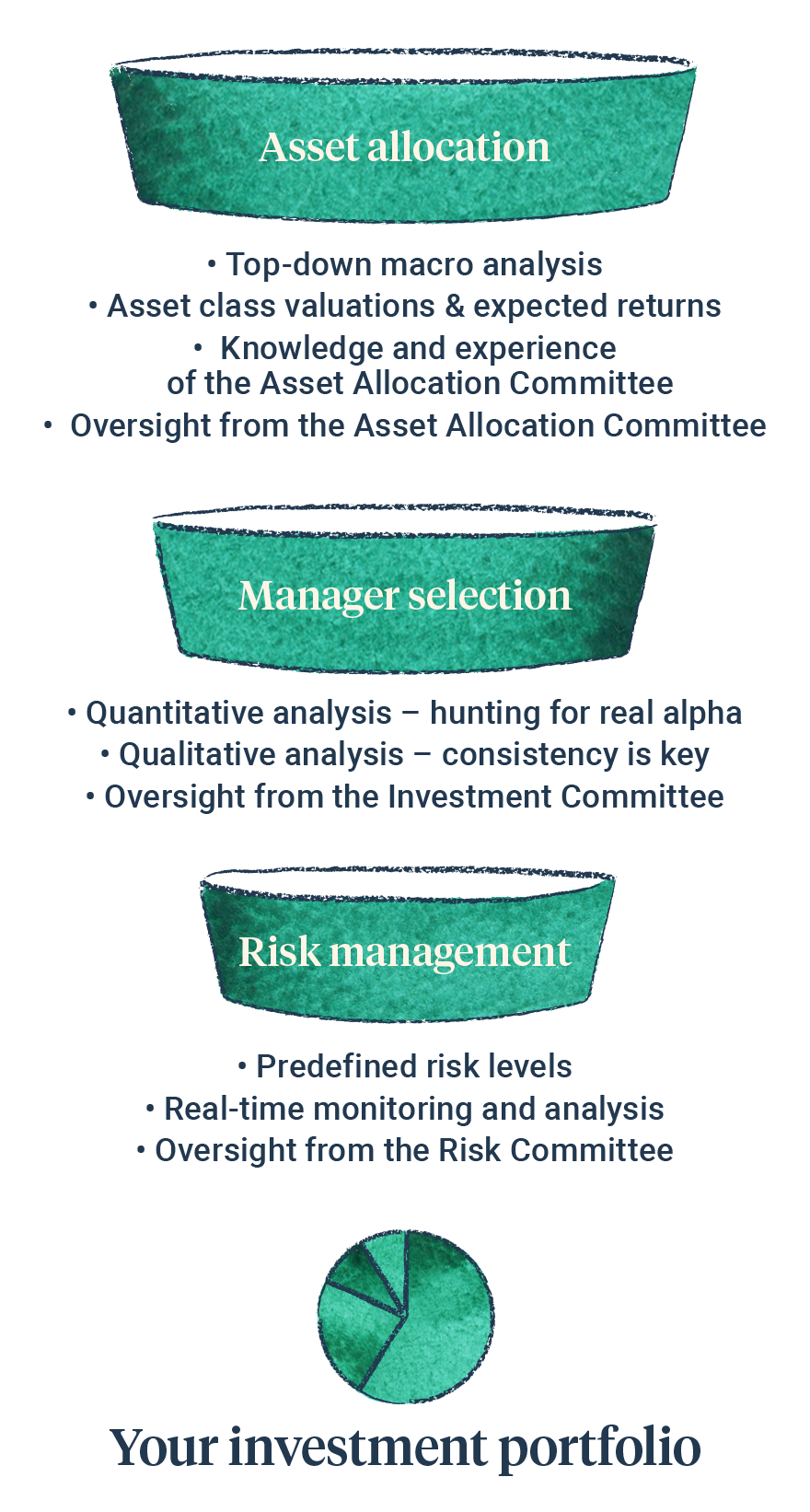Growth (economic)
The key issues investors are grappling with are economic ones: is inflation under control? Are economies holding up? Will we see recessions, and if so where, and what shape will they take? Will geopolitical tensions worsen the outlook? What do these mean for the path of interest rates and what investments are likely to prevail? Taking these in turn…
Inflation has fallen a lot over the last year. For example, comparing March 2023 to March 2024 CPI numbers, inflation has gone from 10.1% to 3.2% in Britain, and 5% to 3.5% in the US. Some shorter term inflation numbers have increased in the US to north of 4%, which investors have focussed on very recently, but generally, the inflation outlook is much better now than it was a year ago. The IMF expects global inflation to fall from 6.3% in 2023 to 5.9% in 2024 and 4.5% in 2025.
Despite continued (but slower) price rises and lingering geopolitical tensions, most economies are holding up. Gross Domestic Product (“GDP”) readings essentially quantify how much stuff is produced and sold in an economy in a given period (services as well as goods). GDP readings show a mixed bag, but in the main are significantly stronger than many predicted would now be the case. Selected recent GDP readings are: USA 3.1% current (1% a year ago), Britain -0.2% current (0.4% a year ago), Euro area 0.1% (1.8% a year ago), Japan 1.2% (0.4% a year ago), China 5.3% (4.5% a year ago).
Looking ahead, the IMF expects the world economy to grow at 3.2% in 2023, 2024 and 2025. Below the historical (2000-19) average of 3.8%, but positive growth nonetheless, i.e. not in recession.
Unemployment remains near historic lows in the USA (3.8%), Britain (4.2%), Euro area (6.5%), Japan (2.6%), and China (5.2%). Labour markets remain strong in our view.
Leading indicators are used to forecast future economic activity, one of the most popular being Purchasing Manager Indices (“PMIs”) which are monthly surveys of business executives who make orders for their companies. Readings below (above) 50 indicate economic contraction (expansion). The latest PMIs for various regions are Global (50.6), US (50.1), UK (50.3), Japan (48.2), Europe (46.1), Emerging Markets (52).
Geopolitics continues to present a risk. The committee acknowledges a lack of informational advantage in this area, it doesn’t pretend to know what will happen. For now, economic impacts appear to be known and manageable on a global basis, even if very damaging in some isolated cases. We remain watchful and ready to respond to emerging threats. For more information on politics and markets please read this recent article: https://www.saltus.co.uk/investment-management-insights/elections-politics-financial-markets-and-investment-portfolios
Interest rate & liquidity environment
Most major economies have been raising interest rates in an attempt to cool inflation. However, interest rates are not expected to move much higher because inflation has been falling. The committee thinks the worst of the hiking cycle is behind us. That said, the risk of a policy mistake by central bankers is elevated in our view. Reduce rates too soon and inflation could rise again, as was the case in the 1970s/80s. But keeping rates too high for too long could damage companies and consumers with high debt levels. This is a difficult balancing act, especially since the impact of higher rates generally takes 12 to 24 months to be felt.
Recent inflation numbers out of the US were higher than expected, above the long-term target inflation rate. Because of this, and because economic growth is fairly strong, investors expect US interest rates to stay higher for longer than was expected at the start of the year.
Valuations & earnings outlook
At the global level, corporate earnings have been resilient, and higher than expected in many areas. Global profit margins have remained robust, despite rising prices and borrowing costs.
Company earnings expectations are broadly positive and improving. At the global level, analysts expect 9.3% earning growth in 2024 and 12.7% in 2025. At the regional level, analysts expect good corporate earnings for the US (+9.7% 2024 +13.9% 2025), Japan (+8.7% 2024 +8.8% 2025), and Emerging Markets (+19.8% 2024 +15.5% 2025). Earnings expectations in the UK and Europe are low in 2024 (+1.6% and +3.5% respectively), but higher in 2025 (+8% and +10.3% respectively).
The US stock market is the only major region that is meaningfully overvalued compared to history, investors are prepared to pay more for companies listed in the US in general, and especially for those expected to profit most from new technologies (e.g. artificial intelligence). The UK stock market is cheap compared to history, trading about 20% more cheaply than its 10-year average (price to earnings ratio).
Sentiment / flows
Predicted stock market volatility has been fairly low over the last twelve months, the widely followed VIX index rarely edged above its long-term average of 21 throughout 2023 (currently at 16). Readings above 30 generally indicate fears of large drawdowns in stocks. Investors appear to feel more cautious now than they did at the start of this year, with stock market volatility having increased following recent macro-economic results. There remains lots of demand for riskier bonds, which shows either a continued belief in the strength of the underlying companies, or complacency.









